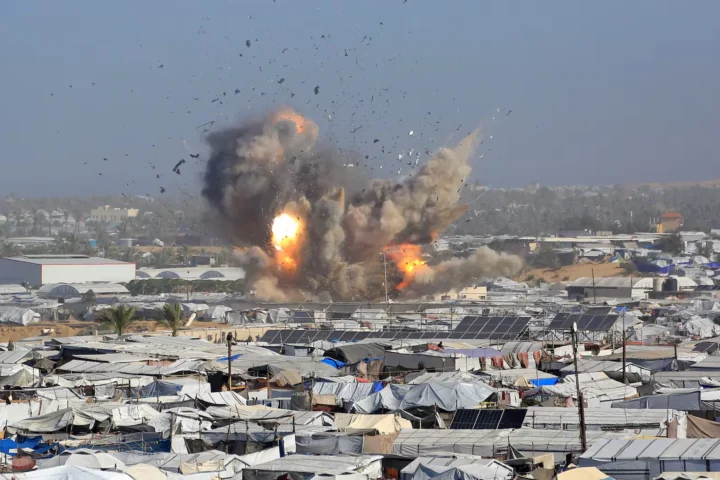In August of 1864, an assembly of nations convened in Geneva, Switzerland, to sign a historic accord aimed at easing the suffering inflicted by war. This agreement, known as the First Geneva Convention, laid the foundation for what would become international humanitarian law (IHL)—a framework designed to limit the horrors of armed conflict by regulating how wars are waged. Over a century and a half later, the world continues to witness the grim reality that these “rules of war” remain frequently disregarded, with devastating consequences for millions trapped in conflict zones across the globe.
Despite the clarity and depth of IHL’s legal structures, achieving widespread adherence has proven to be an enormous challenge. The framework, while comprehensive, often falters in the face of political inertia and a lack of effective enforcement mechanisms. This failure breeds a culture of impunity that not only weakens the rule of law but also entrenches cycles of violence and suffering. As wars rage from Sudan to Ukraine, and from Yemen to Myanmar, the inability to hold violators accountable leaves civilians unprotected and humanitarian efforts increasingly imperiled.
For years, international organizations like the International Committee of the Red Cross (ICRC) and the United Nations have called for more robust compliance mechanisms. Back in 2015, the ICRC, with support from Switzerland, proposed a novel resolution to establish a regular forum for states to report on their adherence to IHL. The idea was simple yet powerful: provide states with a neutral platform to discuss compliance and push for greater accountability. Unfortunately, the proposal failed to garner enough support and was ultimately shelved, exposing a critical gap in the global system designed to protect human dignity in war.
This unwillingness to adopt mechanisms for monitoring compliance is not just an institutional shortcoming; it has real and severe consequences. Civilians suffer when there is no accountability, humanitarian access becomes restricted, and the fundamental tenets of international law are eroded. It’s time for a new approach—one that puts accountability front and center.
A Modern Approach Inspired by the Past
History provides us with compelling examples of what can be achieved through moral courage and decisive action. Consider Raoul Wallenberg, a Swedish diplomat who, during World War II, saved tens of thousands of Hungarian Jews from Nazi extermination. He did so by issuing protective passports and sheltering people in safe houses designated as Swedish territory. Wallenberg’s bravery transcended diplomatic duty; he became a beacon of hope in the darkest of times.
To honor his legacy, the Raoul Wallenberg Institute of Human Rights and Humanitarian Law (RWI) was founded in 1984 at Sweden’s Lund University. Its mission: to further the cause of human rights and uphold the principles of IHL. Today, as promises made in the aftermath of World War II seem increasingly distant amid the ongoing tragedies in Gaza, Syria, Colombia, and beyond, RWI is stepping up with an innovative initiative designed to reshape how IHL compliance is monitored and enforced.
The Institute is developing the International Humanitarian Law Compliance Monitoring Database (ICMD), an academic research project with transformative potential. This initiative aims to become a critical pillar in the global infrastructure that upholds IHL. Using cutting-edge technology, including machine learning and advanced data analysis, the ICMD will gather and aggregate reports on IHL violations from around the world, presenting this information in an accessible, centralized platform. By harnessing open-source data, the ICMD promises to produce accurate and comprehensive reports, providing a credible basis for accountability efforts.
This initiative isn’t merely about collecting information; it’s about creating an indispensable resource for policymakers, humanitarian workers, and researchers. By analyzing trends and patterns in conflict, the ICMD will offer valuable insights that can guide international responses and bolster efforts to enforce IHL. It is a vital step towards building the political and social momentum needed to break the cycles of impunity that plague today’s war zones.
The Time for Action Is Now
The failure to uphold international humanitarian law is not an abstract problem—it is a pressing threat to global stability and security. It’s time for states to step up, support initiatives like the ICMD, and commit to the transparent monitoring and enforcement of IHL. The international community must recognize that without a concerted effort to enforce these laws, the suffering of civilians will continue unchecked, and the rule of law will be further undermined.
Citizens also have a role to play. Public pressure is an essential force in pushing governments to prioritize humanitarian law and to demand better compliance and enforcement. Supporting initiatives like the ICMD is a tangible way to influence this agenda, ensuring that violations are documented and that there is a foundation upon which justice can be built.
The path forward will not be easy. But by drawing on historical lessons of courage and dedication, like those exemplified by Raoul Wallenberg, we can forge a future where IHL is not just a set of ideals, but a practical, enforced reality. The ICMD offers a powerful tool to turn the tide against impunity and hold violators to account, restoring dignity and justice to those affected by conflict.
We stand at a crossroads: either we rally behind this urgent effort, or we continue to witness the degradation of principles meant to protect the most vulnerable among us. The choice is ours—and the time to act is now.











